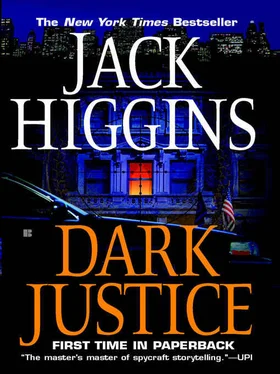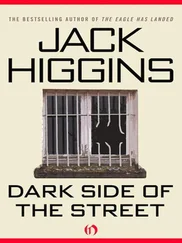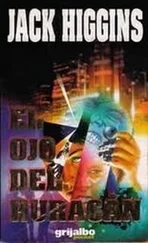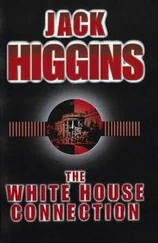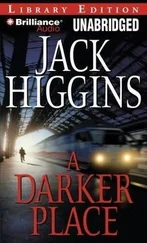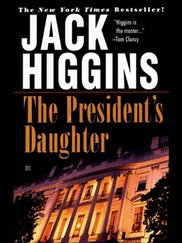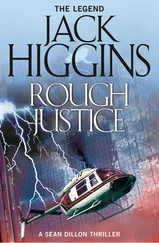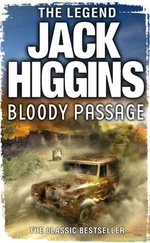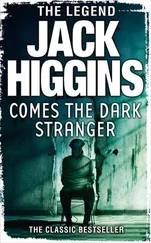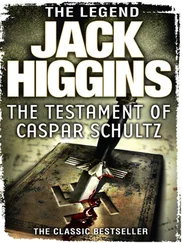“Absolutely.”
“Good. Since you’re going in with the RAF, there won’t be any problem over weapons.” He said to Roper, “Have you got the Belov report ready?”
“Right here.” Roper pushed five copies over.
“Excellent.” Ferguson picked one up and gave it to Dillon. “Gives you something to read on the plane.”
“I look forward to it.”
“You take one, too, Superintendent, and you, young Salter, you’d better get home and break the good news to Harry. Now, we all have a great deal to do. I suggest we get a move on.”
RAF Northolt on the edge of London catered not only to the royal family and the Prime Minister and other politicians, but was a great favorite with executive jets. So it was there the following morning that Ashimov delivered Greta Novikova to a waiting Falcon.
The two pilots were British, named Kelso and Brown, but the stewardess was Russian and introduced herself as Tania.
Ashimov kissed Greta on both cheeks. “Safe journey. I’ll have someone introduce himself at the hotel. You can take it from there.”
“Just one question, Yuri. Do I kill him?”
“Whatever you think best, my dear. Though it does rather seem like he’s served his purpose, doesn’t it?” He smiled. “Now, off you go.”
Later, watching the Falcon rise, he smiled slightly to himself. What a woman. What a marvelous bloody woman. And then he turned and walked to his waiting limousine.
At Farley Field, the small RAF installation used by Ferguson ’s people for covert operations, Dillon, Hannah and Ferguson arrived in the Daimler and were met by Squadron Leader Lacey and Flight Lieutenant Parry standing beside a Citation XL. Both men wore flying overalls with rank tabs, and the plane had RAF roundels.
“Good to see you, Sean,” Lacey said. “Will it be messy?”
“Well, you know me. It usually is.”
He gave Parry his traveling bag to take on board and Lacey said, “The Quartermaster’s left a bag for you inside. He said you’d find everything you need.”
“Excellent,” Ferguson said. “I do admire efficiency.”
At that moment, an Aston Martin came around the corner of the terminal building, and Harry and Billy got out and approached, Harry carrying his nephew’s bag.
“You’ve done it again, you little Irish sod,” said Harry to Dillon. “I mean, we’ve had bad times before, but going to Baghdad! That’s a bit rich, even for you.”
He gave the bags to Parry, and Dillon said, “I’m under orders, Harry, from your man here, and Billy’s a volunteer.”
“Well, more fool him.”
Hannah took two envelopes from her briefcase and gave them one each. “New passports, still in your real identities. They document that you’ve been to every war zone possible in the past few years. Your press credentials are all in order. Hopefully, Sharif will have important information for you when you arrive.”
At that moment, Ferguson ’s mobile went and he answered it. “Yes?” He frowned. “I see. Thanks.” He put it away. “Roper. A Falcon owned by Belov International took off from Northolt an hour ago with Greta Novikova on board, destination Baghdad.”
“Surprise, surprise,” Dillon said.
Harry embraced Billy and turned to Dillon. “Bring him back in one piece or else.”
As Billy went up the steps, Hannah hesitated, then kissed Dillon on the cheek. “My God, I finally made it.” He smiled. “Keep the faith.”
She walked away, and Ferguson said, “Do be careful, Dillon. It would seriously inconvenience me if you didn’t make it back, you and Billy both. As for Selim, if the Russians get to him, I think he’s a dead man. I’m sure that’s what Novikova is all about. Do what seems appropriate. Do I make myself clear?”
“You always do.”
Dillon went up the steps and joined Billy. They settled down and Parry pulled up the door, then joined Lacey in the cockpit, where the squadron leader already had the engines rumbling into life.
“Here we go,” Billy said. “Into the bleeding war zone again.”
“Come off it, Billy, you love it.”
Dillon opened his bag and produced Roper’s notes. He started to read while Billy worked his way through the Daily Mail . It didn’t take long, perhaps twenty minutes, before Dillon was finished.
“Any good?” Billy asked.
“Roper does a good job. He should write thrillers.” He tossed it across. “Read it and learn what we’re up against. The full and active life of Josef Belov.”
IN THE BEGINNING JOSEF BELOV
6
Once, during the early days of the Chechen War, perhaps 1991, although he could never remember exactly, Josef Belov, a colonel in the KGB and more used to intelligence work, killed five Russian soldiers personally. It happened in this way:
Belov was head of the KGB’s Department 3, concerned with intelligence gathering about the Western world, but Chechnya was something else again, a case of all hands to the pumps, which was why he found himself being driven through the charnel house that was once the Chechen capital.
He sat in the front seat of an American jeep, of all things, being protected by Special Forces paratroopers, who had procured a large number of the American vehicles because of their proven worth in combat.
Belov had a corporal driving, and a sergeant standing in the back behind a heavy machine gun mounted on a swivel. He himself had an unusual weapon to hand, an Israeli Uzi machine pistol with one magazine taped to another to allow instant reloading.
There were refugees everywhere, lots of women and children, some pushing prams loaded with a few pitiful possessions, all screaming in terror at the sounds of battle: artillery shells landing with a crash, buildings collapsing in clouds of dust, helicopters passing overhead firing rockets into Chechen defensive positions.
None of this bothered Belov, the old Afghan hand. What did was the sight of a number of soldiers crowded around an army truck at the side of the road, who were obviously waiting their turn as a young girl lying back on the driver’s seat was in the process of being raped.
Belov waved a hand, and the jeep stopped. He saw an older woman nearby, her face stained with blood. She struggled free of the man who held her, saw Belov and lurched toward him.
“Sir, I beg you. My daughter is only thirteen.”
Two soldiers grabbed her again and pulled her back. Belov said, “Let her go.”
They looked crazed, faces filthy and sweat stained. One of them cried, “Who in the hell do you think you are?” and took a pistol from his holster. Belov produced his Uzi, shot him through the head, swung as the other one pulled the woman in front of him and sprayed a short burst, which unfortunately killed the woman as well as the soldier. The others turned in alarm and Belov fired again and again.
Some of the soldiers started to fire back, and the sergeant returned their fire with the heavy machine gun, scattering men across the sidewalk. The girl was still there, Belov saw her clearly, and then the fuel tank on the truck exploded and the whole thing fireballed. Belov’s driver immediately reversed away.
The sergeant said, “You were right to do that, Colonel. I’ve got two daughters back there in Moscow.”
“But I haven’t. I did it because it was right in the eyes of God. A great man named Oliver Cromwell said that once. A general who turned England into the first republic in Europe.” He took out his cigarette tin and extracted one, passing the tin to the others. “Let’s get moving. They usually say things get better. In this case… I rather doubt that.”
Born in the Ukraine in 1943, Josef Belov had never known his father, a peasant farmer who, like several million other Soviets, had gone away to fight the war against the Nazi invader. He never came back.
Читать дальше
Конец ознакомительного отрывка
Купить книгу
